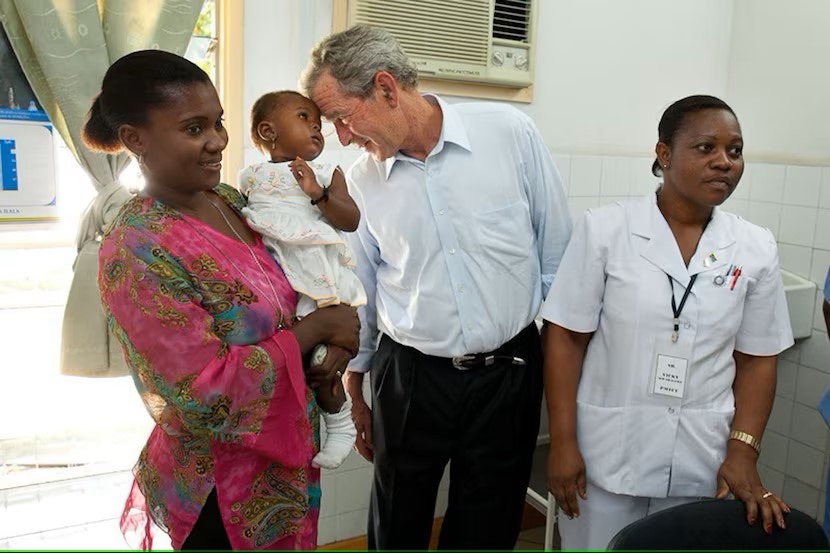We need to keep searching for ways to promote a free flow of information within Russia.
The information war that Vladimir Putin has launched along with his invasion of Ukraine carries consequences that almost surely will last beyond the end of the military fighting. The long-term risk in his clamping down on Russians’ access to a free flow of information is that this control from the top becomes the new normal. In other words, much like the Soviet Union’s leaders limited access to information through Pravda and other state sources, except this time after Russians have been exposed to some independent sources of information over the years, albeit ones under increasing attack.
To be sure, Putin’s seizing of two independent TV stations when he first came to power showed his desire early on to control his messages. His latest moves start with him signing last week a Duma—passed law that would imprison journalists, representatives of social media giants and other information providers in Russia with a sentence of up to 15 years for simply calling his invasion of Ukraine a “war” or even what it is: an “invasion.”
The result has been a closure of Russian news organizations that took root in the glasnost era and have surprisingly been able to do some independent journalism. Among the casualties are Echo of Moscow, an independent radio station and TV Rain, a digital news organization. Novaya Gazeta, a newspaper whose editor, Dmitry Muratov, shared the 2021 Nobel Peace Prize for his courageous journalism, still publishes, but last week it stopped reporting on the military aspects of the invasion.
The threat to independent reporting also has resulted in the New York Times pulling its reporters and editors out of Russia. CNN temporarily stopped broadcasting within Russia to protect its reporters based there, while Bloomberg News has stopped gathering news in the country in the interim. The BBC previously exited but now has returned some journalists to Russia.
Then there is Putin’s blocking of his country’s access to Voice of America, Radio Free Europe/Radio Liberty, the BBC, and German broadcaster Deutsche Welle. Radio Free Europe/Radio Liberty already had left Russia after being fined $15 million for not complying with Russia’s absurd foreign agent law.
At the same time, Putin has blocked Russians from gaining access to Facebook and Twitter and the larger worldwide web. Experts liken this to the erection of the Great China Firewall, where Chinese authorities have set up their own internet while blocking access by Chinese citizens to the larger worldwide web. (Troublingly, China would like international bodies to rewrite the rules that govern the internet.)
What we don’t know is how long the military fighting will last. Nor do we know how long Putin stays in power if his Ukrainian gamble doesn’t pay off.
But if Russia prevails, or Putin stays in power regardless of what happens in Ukraine, it is hard to see him backing off tight control of information within his country. The cessation of independent journalism and restrictions of information flows signal the arrival of a dark world in Russia. The state and its leader determine what people know and don’t know about their country as well as the world.
The tyrant, the autocrat, the demagogue all love limiting information. It is the ultimate in control. You limit knowledge, you get to set your own separate reality and create a parallel universe.
Of course, Putin’s not alone. Beijing’s quashing of independent news like Apple Daily and dissenters like Joshua Wong in Hong Kong is another disturbing development. You can only admire young democratic activists like Wong, who predicted his eventual arrest to my colleagues Lindsay Lloyd, Chris Walsh, and me in the summer of 2020. Imprisonment came by year’s end, and he remains there today.
Given these trends, which the situation in Ukraine highlights, policymakers and diplomats need to continue to press for a free and independent press around the world. Freedom House’s latest Freedom in the World report notes how Russia in particular fails on this front, earning a zero out of four possible points for creating the conditions for an independent press to operate. Aligning ourselves with western democracies on this front and continuing to call out Putin’s abuses will be crucial in rallying Russians who value freedom of expression and transparency.
Similarly, Capitol Hill must adequately fund entities like Voice of America and Radio Free Europe/Radio Liberty and keep them independent from political pressure. Their independent reporting is what gave succor to dissidents like the late Vaclav Havel when he was imprisoned in Czechoslovakia during the Cold War for his commitment to freedom of expression.
Using the voice and dollars of the United States will not reverse overnight the situation in Russia — nor in any other autocracy, for that matter. The groundwork Vladimir Putin is laying suggests we may be in for a long slog. He appears hell-bound on unraveling Mikhail Gorbachev’s glasnost policies and the relatively flourishing and diverse media landscape in Russia under Boris Yeltsin.
If he remains in power, we need to keep searching for ways to promote a free flow of information within Russia. However the fighting turns out, the invasion of Ukraine may have serious repercussions for a long while.
































